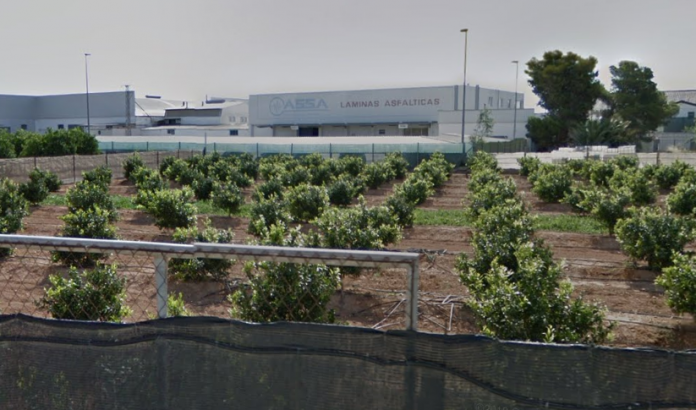The Supreme Court has ordered the Town Hall in San Pedro to pay 400,000 euros to 13 families who have been affected by odours emanating from the plant which is sited adjacent to their homes.
Resident Miguel Sánchez told the courts “My son was suffocating from the chemicals, especially at nights, and we had to go to the ER every two days until we eventually left San Pedro.”
Miguel and Elisa had purchased a new property with their savings but they had to return the key and move to the neighbouring municipality of Pilar de la Horadada so that their children could breathe without attacks of nausea and choking.
The situation has been around for over 16 years, during which time there have been countless street demonstrations, judicial appeals and confrontations with at least three mayors, all of whom have supported the factory owner, a prominent member of the local Partido Popular Party.
The initial court ruling, which found in favour of complainants Miguel and Elisa, was made in 2010 at which time the Superior Court of Justice ordered the Town Hall to compensate the family, but the payments were suspended, so that the council accumulated a debt with the couple of more than 30,000 euros.
But now the courts have said that the local government will have to add a further 400,000 euros to the bill which they owe to 12 other complainant families, who subsequently followed Miguel and Elisa.
Despite the fact that the Council appealed the verdict, the Court of Cartagena came down in favour of the families, a ruling that was later ratified by the Supreme Court and then the Contentious Administrative Judge of Cartagena, who said that “the existence of odours was proven,” adding that they thought that “the consistory was completely insensitive to the welfare of the residents.”
In the meantime the City Council has reached an agreement with the plaintiffs for the payment of the outstanding debt, which will now be paid to the families in six instalments, however if the payments are not maintained the sum will accrue interest at a rate of 6,500 euros a month until everything is paid.
Those families affected, however, feel that the judgment doesn’t go as far as it should, particularly after so many years of “spending thousands of euros on analysis, studies, experts and technical reports of all kinds,” says Mariano Villaescusa, another of the litigants who lived about 500 metres from the main chimney of the factory.
“When the Levante wind blows there is a very bad taste, some anguish, a dry mouth and stomach disorders,” says the resident. His wife, Toñi, says that they have been waiting for years to sell the house “because it is painful to have to fight against your town hall who just dont listen to us.”
“There are about another 30 residents in Las Lomas – but they have not reported the problems out of fear,” she added.
The residents are particularly critical of the councillor for the Environment, Pedro Sanchez, who said in the Plenary last January that the protests were only made because the complainants had an economic interest. “Nothing compensates having to leave your home, the payment of private doctors, reports of companies specialising in odours, lawyers and time spent,” responds Miguel Sánchez. “I do not think we’ll ever go back to our house even if the smells disappear. It brings us very bad memories, “he says.





